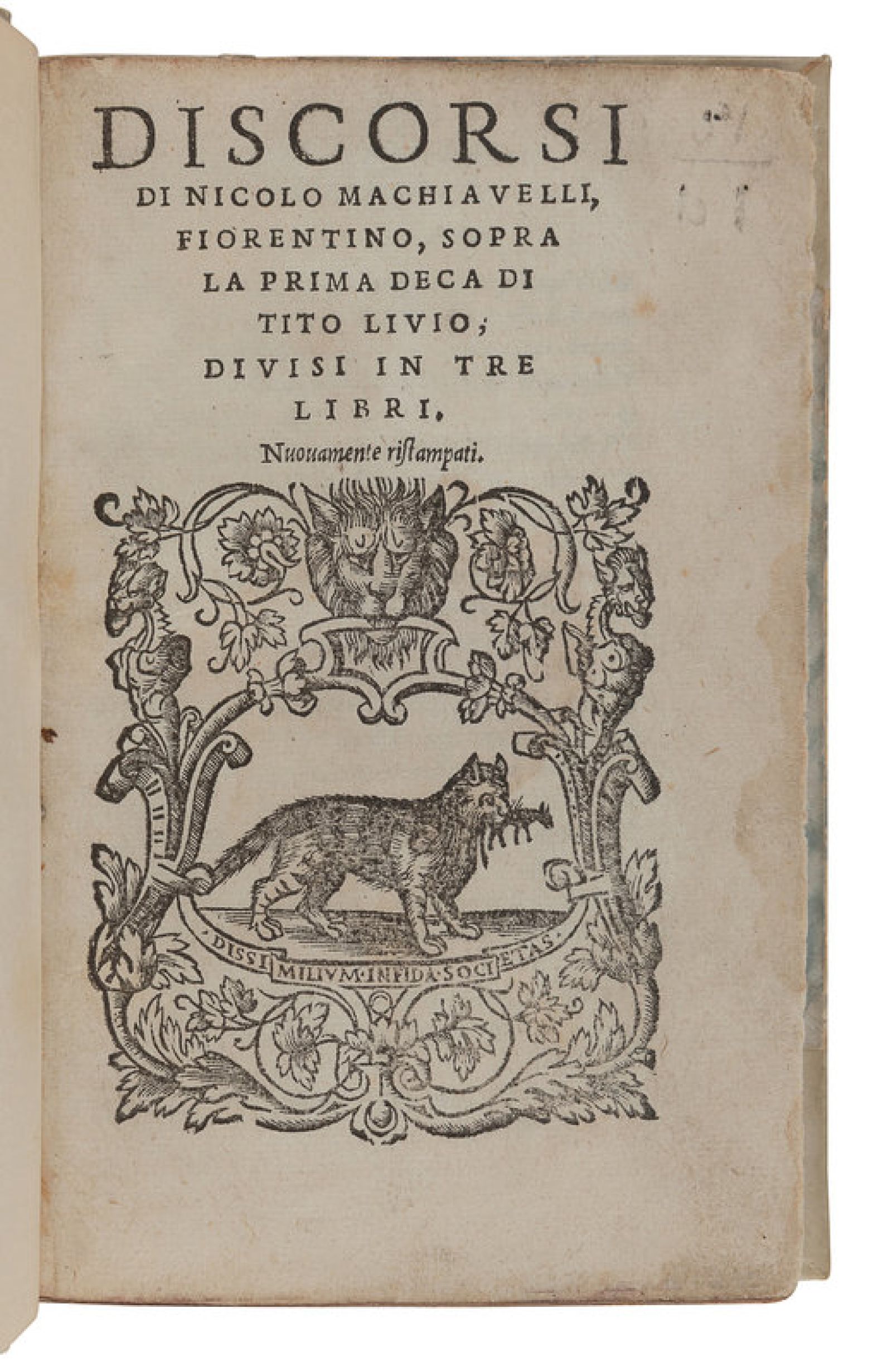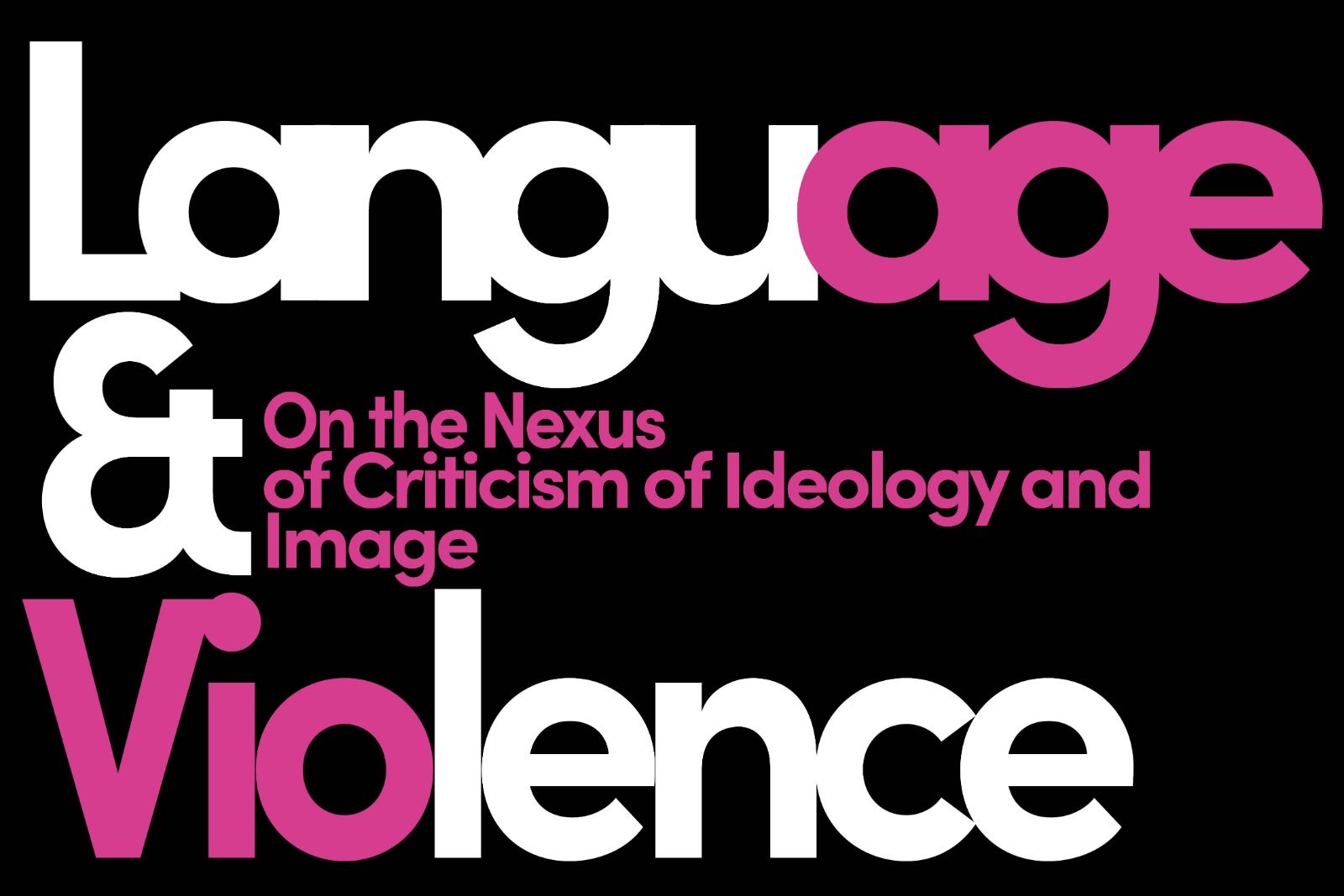Lecture
Yves Winter
Machiavelli’s History of Florentine Punishment and the Logic of Political Violence
Part of the Lecture Series 'Language and Violence. On the Nexus of Criticism of Ideology and Image'
Organized by Hana Gründler and Giovanna Targia

Niccolò Machiavelli, Discorsi sopra la prima Deca di Tito Livio, Venice: Giovanni Antonio and Nicolini da Sabio, Melchior Sessa, 1537, title-page.
In the Discorsi sopra la prima Deca di Tito Livio, Machiavelli infamously advances a preference for severe punishment of political crimes, typically by recourse to capital punishment. This endorsement of capital punishment is conventionally interpreted in one of two ways. Most commentators accept as trivial that lethal violence is the ultimate penal instrument of any political institution, thus attributing to Machiavelli a proto-Weberian view whereby lethal violence is an inescapable feature of the political and an indispensable instrument of the state. A minority of commentators, by contrast, impute to Machiavelli either a perverse fascination with violence or a cosmology or metaphysics of violence that assigns mystically creative, regenerative, and redemptive powers to violence. In this talk, I develop a third position, which builds on a more complex and rhetorical account of political violence.
Yves Winter is Associate Professor of Political Science at McGill University where he teaches history of political thought and contemporary social and political theory. His research interests include Machiavelli, the history of Marxism, and critical theory (Frankfurt School, post-war French thought, post-Marxism, and contemporary debates on gender, colonialism, and race). He is the author of Machiavelli and the Orders of Violence (Cambridge, 2018) as well as articles on violence, sovereignty, and political order. Currently, he is working on a book on the idea of the social/political imaginary and on a research project on the afterlives of colonialism.
Language and Violence. On the Nexus of Criticism of Ideology and Image
Organised by Hana Gründler and Giovanna Targia
The relationship between logos and violence has frequently been thematised with reference to rhetoric, especially in political theory. Enlightenment logos and political emotions seem to be in constant tension with one another. Moreover, language and violence are inextricably intertwined through the theme of visibility, of making visible and exposing, but also of casting shadows, marginalizing, and making things or people invisible.
Following up on a transdisciplinary workshop held in November 2022, this lecture series will focus on the nexus of criticism of ideology and image from different disciplinary perspectives. The aim is to contribute to a critical examination of the role of language in connection with social hierarchies, hegemonic relations, and questions of epistemic violence.

03 July 2023, 5:00pm
This will be a hybrid event.
Venue
Palazzo Grifoni Budini Gattai
Via dei Servi 51
50122 Firenze, Italia
To participate online please register in advance via Zoom: https://eu01web.zoom.us/meeting/register/u5Yvdeytqz4uH9UjC6ks6iRdzeckdZd3qNdl
After registering, you will receive a confirmation email containing information about joining the meeting.
Notice
This event will be documented photographically and/or recorded on video. Please let us know if you do not agree with the Kunsthistorisches Institut in Florenz using images in which you might be recognizable for event documentation and public relation purposes (e.g. social media).



